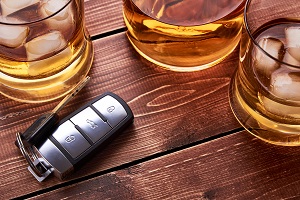
- To prepare for your hearing, you will want to do the following:
- Finalize the legal defense you intend to raise
- Organize and go over the evidence you intend to submit,
- Examine the evidence that the DMV intends to submit.
- List the main points you want to convey to the DMV hearing officer.
- For assistance, contact an experienced DUI defense attorney.
At the end of the hearing, the hearing officer may:
Decide whether to suspend your driver’s license based on the alleged DUI (known as “sustaining the action”) or reverse the suspension (known as “setting aside the action”).
If the officer withdraws the action, it is like receiving a not-guilty verdict.
Can I present a legal defense during a DMV hearing?
Yes. At a DMV hearing, you have the right to present a legal defense/disclaimer.
A hearing officer will suspend a driver’s license if the officer discovers the following:
The DUI stop and arrest were legal, and you were found guilty of drunk driving, driving with a blood alcohol content (BAC) of.08% or higher, or refusing a blood or breath test.
Effective defenses, then, are those that refute the preceding findings. Other common defenses include demonstrating:
The arresting officer did not have probable cause to arrest you, the breath testing instrument used in the case was not calibrated or was not working properly, and/or there were fatal flaws in the arresting officer’s paperwork.
May I present evidence at these hearings?
Yes. At a DMV hearing, you can present your own evidence.
Once you’ve decided on the best defense to present at the hearing, gather and organize any evidence that supports that defense.
Among the most common types of evidence are:
- witness statements,
- medical records,
- photos, and
- surveillance video.
When it comes to witnessing statements, you have two options: submit written witness statements into evidence or have a witness attend the hearing and present live testimony. You can also issue a subpoena to help ensure that a witness attends a hearing to testify.
Do I get to look over the DMV’s evidence?
Yes. You are informed of the legal grounds for the action at the hearing and have the opportunity to review and challenge the DMV’s evidence.
Before the hearing, the DMV must provide you with any evidence it intends to present. This evidence is typically the arresting officer’s police report. It is important to note that a DMV hearing is not the same as a court proceeding for an alleged DUI charge.
You will face two separate legal proceedings if you are arrested for DUI:
A court proceeding for the DWI in criminal court and a DMV DUI hearing. As previously stated, the DMV hearing can result in your license being suspended or revoked. However, in court, a judge or jury decides whether or not you are guilty of DUI.
The evidence presented by the DMV at a DMV hearing is typically the same evidence presented by a prosecutor in a criminal case.
Is it permissible for me to bring written notes to a hearing?
Yes. You can attend a hearing with evidence supporting your case and any notes necessary to present that evidence. In fact, you are encouraged to prepare a script ahead of time.
You should write down whatever you want to say. This way, if you become nervous, you can still say what is required to win the hearing.
Can I have a defense attorney represent me at DMV hearings?
Yes. You can hire a criminal defense lawyer to represent you at a DMV DUI hearing.
In reality, having a DUI lawyer/DUI defense attorney represent you at a hearing is usually a good idea. A hearing lawyer is more skilled at locating and presenting legal strategies to counter DMV evidence.
Furthermore, attorneys can assist you in locating critical evidence and exhibits to support your case. Additionally, the attorney-client relationship also protects any information you discuss with a lawyer. As a result, the lawyer cannot share this information with another party.
Legal help from Marley Law Firm
If you are facing DUI charges, don’t waste valuable time, call (949) 726-6000 today and speak to an expert California DUI lawyer.

